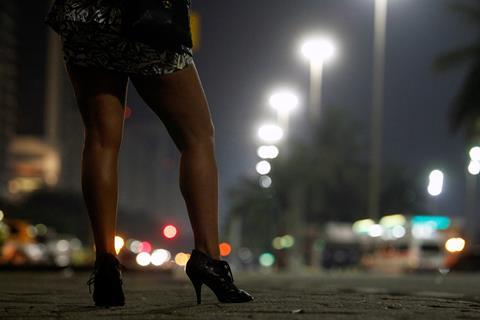‘Those who oppose the decriminalisation of sex work tend to be activists who are ideologically driven by conservative social morality,’ says Sally Hope as she looks at what it would mean for sex workers if their jobs were legalised.

This year, on 3 October the Council of Europe was asked to vote on a resolution to decriminalise sex work. They chose instead to send it back to the committee for further exploration. Had they voted for it, they would have been urging their member states, including the UK to completely decriminalise sex work.
The resolution was opposed by Citizen Go, (a conservative advocacy group). Their argument sounds reasonable: the majority of sex workers are not doing the job by choice, they are often victims of trafficking and violence. Decriminalising sex work normalises it, and by removing penal sanctions against clients and pimps, trafficking and violence against women is effectively given a state sanction.
If the resolution does encourage trafficking and violence against women it seems odd that it was supported by a number of organisations dedicated to human rights; including Amnesty International, Human Rights Watch, Global Alliance Against Trafficking Women and the European Sex Workers Rights Alliance.
It may seem wrong to legalise something that’s so demeaning and degrading,
It may seem wrong to legalise something that’s so demeaning and degrading, but those organisations supporting the decriminalisation of sex work point to evidence that shows that this is the most effective way to reduce harm. Human rights watch argue that when sex work is illegal, sex workers are exposed to violence and abuse not only from criminals, to whom they are beholden for work, but also from law enforcement officers. When sex work is illegal, sex workers are unable to seek justice for crimes against them, access healthcare or unite to advocate for their rights. Even in countries that seek to criminalise the buying of sex but not the workers themselves, sex workers are still shown to be unsafe because their work is still carried out in a secretive and criminal environment with the same stigma from society that prevents their access to healthcare and justice.
Advocates for Decriminalising sex work argue that trafficking and coercion are separate issues from consensual sex work. Decriminalisation allows them to be confronted as such, they tell us that; “sex workers may be in a position to have important information about crimes such as human trafficking and sexual exploitation of children, but unless the work they themselves do is not treated as criminal, they are unlikely to feel safe reporting this information to the police.” (Human rights Watch)
As a Christian I’m far more concerned with the welfare and safety of women than I am in worrying about the morality of sex work itself.
As a Christian I’m far more concerned with the welfare and safety of women than I am in worrying about the morality of sex work itself. Two of the four women mentioned in Jesus’ lineage sold access to their bodies. The Bible makes no comment whatsoever on the morality of their choices, but it does hold them in esteem as important, they are instrumental in God’s plans and they matter to him. Their voices matter, their stories matter. As do sex workers today.
Those who call for the decriminalisation of sex work have consulted with sex workers, they have listened to their stories, heard their voices, they consider them the experts in what is in their best interests. They have carried out extensive research and studied the evidence to ascertain as best they can what kind of legislation brings about the least harm to all women involved in sex work, whether it’s by choice or not. Their motivation is the protection of women and girls and they are on the whole made up of organisations and individuals best placed to make this call.
Read more on prostitution
Reaching out to women in prostitution
Modern day slavery: Human trafficking
Why safe housing is the best gift for sexually exploited women this Christmas
Those who oppose the decriminalisation of sex work tend to be activists who are ideologically driven by conservative social morality, I see little to no representation of the people whose lives will be affected by this legislation in their campaigning.
As Christians I believe we should leave these complex legislative questions to the experts. The questions we should be asking are: What can we do to create a society where women and girls are not trafficked and exploited? How can we tackle root causes such as poverty, inequality and addiction that leave women and girls open to exploitation? How can we treat sex workers with dignity and respect? How can we offer a path to escape sex work for those who wish to take it? How can we help make sex workers’ lives safer? How can we help heal the trauma involved?
Rather than signing ill informed petitions I would rather see us supporting the work of organisations like Beyond the Streets who focus their efforts on providing real practical support to women affected by trafficking and prostitution.

Sixteen Days of Activism: Online abuse in Christian spaces
With the rise and prevalence of sexual offences, believers everywhere need to confront sexual violence honestly - both in society and in Church
'I re-discovered hope in God after domestic abuse and now I want to help other women to do the same'



































1 Reader's comment